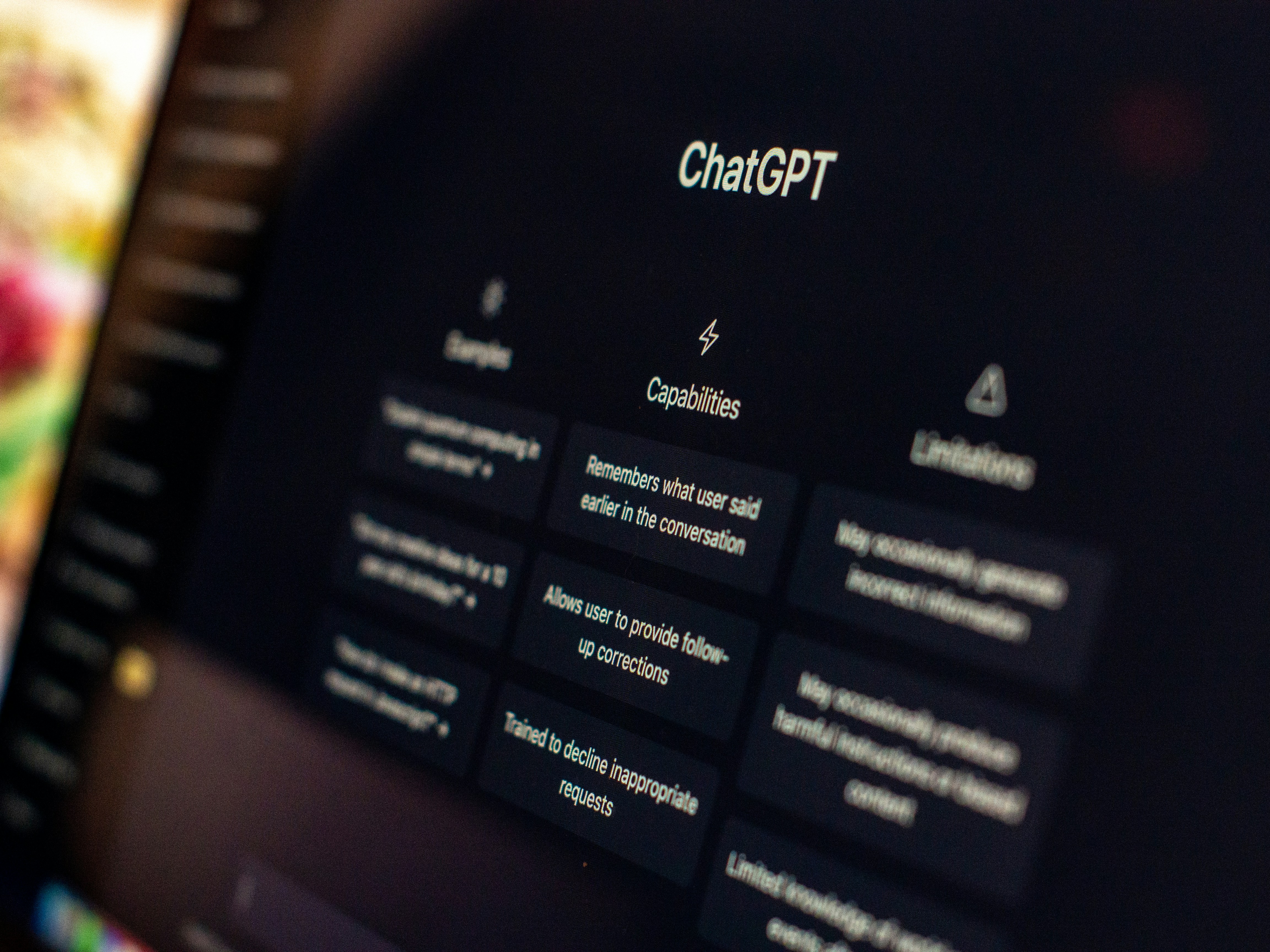13 Best Chat GPT Alternatives for Coding
Are you tired of the same old GPT chat platforms for coding? Looking for something that can actually help you with your programming tasks? If you're nodding your head in agreement, it's time to explore AI Copilots. These are the chat GPT alternative for coding that you have been waiting for. With AI Copilots, you can get the coding assistance you need without the fluff and irrelevant responses. Whether you're a beginner looking for guidance or a seasoned developer needing a second pair of eyes, AI Copilots have you covered. They are your one-stop solution to all your coding problems. Get on board!
How Good Is ChatGPT at Coding?

ChatGPT can write code effectively for various tasks, such as generating code, debugging existing code, and generating documentation. When using ChatGPT for coding tasks, you should provide specific and detailed prompts to achieve the best results. It is important to note that ChatGPT is better suited for aiding in coding routines or tasks rather than developing full-fledged applications from scratch.
Efficient Assistance in Coding
One of the most beneficial aspects of ChatGPT for coders is its ability to assist in finding the appropriate coding libraries for specific requirements. By engaging in an interactive conversation with ChatGPT, you can narrow down library options effectively. It is essential to remember that the ownership of AI-generated code may be a concern, and the reliability of the code should always be verified before implementation.
User Interaction with ChatGPT
Interacting with ChatGPT should be seen as a conversation. By refining questions based on the responses received from ChatGPT, you can guide the AI model to give you more accurate and useful output for your coding tasks. This approach helps in improving the quality and relevance of the generated code snippets.
Related Reading
Why Consider a Chat GPT Alternative for Coding?

In the coding industry, it's important to recognize the common issues that developers may face when using ChatGPT for coding. ChatGPT does have its limitations, especially in the coding environment. Developers may find it challenging due to the following factors
1. Limited Complexity
ChatGPT might struggle in creating complex codes or identifying errors in intricate programs, limiting its capacity to handle sophisticated coding tasks. Human intervention may be needed for such scenarios.
2. Accuracy Concerns
While ChatGPT can generate code snippets, the accuracy may not always be guaranteed. There's a possibility of it generating inefficient or incorrect codes, which puts a responsibility on developers to thoroughly check and verify the output.
3. Dynamic Data Handling
Real-time data sources often involve dynamic data that changes frequently. This dynamic nature can be a challenge for ChatGPT to handle effectively, as developers need to ensure that the suggestions and code completions are constantly updated with the latest data.
4. Data Privacy
With the integration of real-time data sources, there comes the concern of data privacy. Developers need to be cautious with user data and ensure that the appropriate measures are taken to protect user information while utilizing ChatGPT services.
Developers often seek alternatives to ChatGPT that can address these limitations more effectively, such as specialized code suggestions, enhanced debugging capabilities, and the ability to handle dynamic and real-time data efficiently.
AI Copilot for Coding
Imagine an AI that can type anywhere on macOS, with full context of what's on your screen. Picture the scenario where your email drafts itself, your terminal understands Bash, and your team updates become effortless. Omnipilot offers a solution to all these challenges. You can now download Omnipilot’s MacOS AI Copilot for free and use AI on your macOS right away!
Try our free AI copilot today — just head to omnipilot.ai and enter your email to download our MacOS app in seconds! Let Omnipilot make your life easier.
13 Best Chat GPT Alternatives for Coding

1. Omnipilot
Imagine an AI that can type anywhere on macOS, with full context of what's on your screen. Imagine if, your email wrote itself, your terminal was fluent in Bash, your team updates became effortless. You don’t have to imagine any of this anymore. You can download Omnipilot’s MacOS AI Copilot for free right now and use AI anywhere on MacOS!
Try our free AI copilot today — just head to omnipilot.ai and enter your email, and you’ll be able to download our MacOS app in seconds! Let Omnipilot make your life easier.
2. Google Bard
Bard is built on a modern, research-based large language model (LLM), which is an organized and upgraded version of PaLM2. Bard has had several updates since its first release.It recently got a core upgrade whereby it is now powered by the “most capable model” Google has developed — Gemini.
This upgrade even made some people consider Bard as the best alternative to GPT-4 as it has even surpassed ChatGPT 3.5. During our test, its code analysis and debugging suggestions were nothing short of brilliant. It can now understand, explain, and generate complex codes with clear explanations.
3. GitHub Copilot
This is an “AI Pair Programmer” developed by GitHub and powered by OpenAI technology. It is made for developers as it is a generative trained model built using trillions of lines of code from GitHub public repositories. Using machine learning, it auto-completes your code based on context, such as comments, variable names, and the code structure.
GitHub Copilot works as an extension in code editors with support for various programming languages. GitHub Copilot is powered using GPT-4 and it provides extra features like copilot chat, pull request support, and even inbuilt CLI functionality — all within an IDE.
4. OpenAI Playground
OpenAI Playground is more of a demo version of ChatGPT but packed with lots of features that can be modified with ease. Its neural network is larger than ChatGPT’s, making it a more advanced developer AI tool. OpenAI Playground lets you tweak various parameters like the model type, frequency penalty, token count, loading presets, etc.
All these make it an ideal place for developers to test out the AI technology before integrating it into an app or website. OpenAI playground is just as accurate and effective at answering and resolving coding-related questions.
5. Vertex AI
This is a platform designed by Google whereby developers can train and customize different AI models. Recently, the most versatile AI model by Google DeepMind- Gemini, can also be accessed through vertex AI. When using Gemini through Vertex AI, it easily understands and responds to diverse prompts. We’ve tested it with image prompts and code snippets to work with, and each time, its accuracy is super impressive.
Vertex AI also offers the use of other generative AI models through its platform. These models include PaLM API, Codey APIs, and Imagen API which all generally consist of texts, codes, and image generation. Some of Vertex AI’s notable capabilities are its ability to connect its output to a specific source of data, citation check, and safety filters that block unsafe/harmful contents
6. Microsoft Copilot
Microsoft Copilot stands out due to its ability to scour the web and provide up-to-date results with cited sources for additional reading. It also generates further prompts automatically when you ask questions.
For instance, when we asked for a JavaScript function that uses the map array method, it asked whether we would prefer to use any other array methods to address the issue. It runs on GPT-4, generates code snippets, and supports image generation on the fly which are all helpful to developers.
7. Amazon CodeWhisperer
Amazon CodeWhisperer is similar to how GitHub Copilot works in that it uses AI to suggest code snippets as you type. CodeWhisperer is an AI tool that has been trained using a variety of open-source code and code found in Amazon libraries. This doesn’t limit its capabilities to Amazon projects as it has been tested and performs remarkably well with major programming languages like JavaScript, Python, and Java.
CodeWhisperer can be accessed through IDEs like JetBrains, VSCode, etc. Once you’ve connected it to your IDE, it will examine the context of your code and assist with writing, refactoring, and even reviewing your code. A core feature of Codewhisperer is that it flags code suggestions that resemble publicly available code which ensures originality. Plus it is also integrated with an AI chat assistant, Amazon Q which is also accessible within the IDE.
8. Tabnine
Tabnine was among the first to introduce auto-suggestion of code snippets in an IDE. Its AI has been trained on many open-source repositories and as a plus, developers can train and customize the AI model within Tabnine. The intriguing thing about Tabnine’s AI is that it can run not only on IDEs but also on your computer, in the cloud, on a server, and even offline.
Tabnine is also working on a chat system which is still in beta at the time of writing this article. Tabnine works with a variety of popular programming languages and many IDEs, including VSCode, Sublime, Vim, Android Studio, etc., making it one of the most adaptable generative AI tools on this list.
9. Codeium
This is another AI generative assistant built specifically for developers. For starters, it offers code autocomplete, refactor code for cleaner structure, and even generates comments for extra understanding. The Codeium’s AI is also trained on publicly available codes. It features the support of a chat system, unlike some that confine such features behind a paywall. There is also a built-in Search feature that allows searching through your codebase efficiently and quickly.
Codeium can be used through an extension medium within popular IDEs like VSCode & JetBrains. With its live feature, Codeium also supports access through browsers which honestly comes in handy for those impromptu code ideas. We used Codeium to run various coding tasks, and it did incredibly well. It generated a flawless JS minimax function for a tic-tac-toe game with explanatory comments and tests. It can even search for APIs and use it, all within the IDE.
10. Cursor
This AI tool takes a different approach than usual as it is an AI-powered code editor. Cursor is basically an editor that acts as a pair programmer that can assist in code brainstorming, debugging tricky errors, and even fixing lint errors efficiently. Getting started with using Cursor is quite convenient as it easily imports your data and extensions from VsCode with just a single click.
Cursor also supports the usual code generation, inbuilt AI chat system, and even terminal debugging. We did encounter some instances whereby code generation stopped midway while working on some code tasks. Also, as you’d have to switch code editors to use Cursor, it might require some getting used to.
11. Mutable.ai
Mutable.ai is an AI tool trained on open-source code; it works extensively with your codebase whether in the GitHub repository or within an IDE. It goes deep into the provided codebase to analyze and understand the intricacies of the codebase. This further helps the AI tool provide relevant code suggestions based on the code context.
This AI tool can effortlessly generate code for various popular languages, frameworks, and libraries. It can generate efficient test cases, refactor codes, and have search functionality. A core ability of this AI is how good it is in code documentation as it is said to be able to transform your codebase into a Wikipedia-style article, complete with citations!
12. Codex
Codex is a language model developed by OpenAI that generates code in response to natural language prompts such as a problem description. This is the model that powers GitHub Copilot. Some of its key features are: It supports multiple languages including Python, JavaScript, Java, and C++.
It's trained on both natural language and billions of lines of code. It’s available through the OpenAI Codex API, which allows developers to integrate it into their own applications and workflows. During the beta period, Codex is free to use
13. AskCodi
AskCodi provides a comprehensive tool to help developers generate code quickly. It has different apps for generating different types of code. For example, it can answer questions about frontend syntax, test cases, SQL and NoSQL queries for your database, and doc strings for your Python code. Below are its key features:
- It supports more than 30 programming languages and frameworks such as Kotlin, JavaScript, Angular, Ruby, Swift, Ruby, Python, and Rust among others.
- It also provides answers to WordPress and Powershell questions.
- It’s available on the terminal and can integrate with IDEs like VS Code and PyCharm.
- It supports multiple natural languages apart from English, like German, Polish, and Spanish.
- It can translate code snippets from one programming language to another.
- It has workbooks where you can generate tests and document code.
Related Reading
- Generative Ai For Software Development
- How To Improve Developer Productivity
- Ai Code Generation
- Ai Assisted Coding
- Generative Ai Coding
- How To Use Ai To Write Code
- Ai Code Completion
- Code Generation
- Automation Tools For Developers
- Swift Code Generator
- Copilot For Mac
- Top Competitor To Amazon Codewhisperer
- Codeium Vs Github Copilot
- Github Copilot Swift
- Github Copilot Xcode
- Ai Code Optimization
- Code Whisperer Vs Copilot
- Ai Coding Tools
Factors to Consider in a Chat GPT Alternative for Coding

Natural Language Processing (NLP)
Ensuring the alternative to Chat GPT for coding tasks has high-quality Natural Language Processing (NLP) capabilities is crucial. NLP is the foundation that allows AI tools to comprehend prompts and provide relevant responses.
When evaluating NLP quality in a tool, it is essential to assess how accurately it understands complex coding queries and generates appropriate suggestions. A robust NLP system directly impacts the tool's ability to assist with coding tasks efficiently.
Auto-completion Feature
One of the key features to look for in a Chat GPT alternative for coding is auto-completion. The auto-completion feature can significantly enhance productivity by allowing the AI to complete code snippets, messages, or lengthy content.
This function acts as a valuable timesaver, especially when dealing with repetitive code segments or common programming constructs. Opting for a tool that offers robust auto-completion capabilities can streamline the coding workflow and reduce manual input.
Use Cases Specialization
Different AI tools excel in various tasks, making it essential to consider the specialized features of a Chat GPT alternative for coding. Some tools may be proficient in brainstorming new ideas, while others may focus on enhancing content or incorporating SEO elements.
By understanding the strengths and use cases of each tool, you can select an alternative that aligns with your specific coding needs. Choosing a tool that specializes in areas that complement your coding workflow can result in enhanced efficiency and productivity.
Privacy and Security Measures
The privacy and security of the alternative to Chat GPT for coding tasks should be a top priority, particularly when handling sensitive data. Verification of the tool’s commitment to safeguarding user information and ensuring secure transactions is crucial.
Selecting a Chat GPT alternative that prioritizes data privacy and implements robust security measures can help prevent unauthorized access to coding projects and confidential information. By prioritizing privacy and security features, users can trust the tool to protect their data and focus on coding tasks without concerns about data breaches or privacy violations.
Related Reading
- Best AI code Generator
- Copilot Alternatives
- Best AI coding Assistant
- Copilot Vs Code
- Codegpt Vscode
- Tabnine Alternative
- Replit Ghostwriter Vs Copilot
- Sourcegraph Alternatives
- Openai Codex Alternative
Try Our MacOS AI Copilot for Free Today
Imagine having an AI assistant that can type anywhere on MacOS with full context of what's on your screen. Omnipilot is the tool that can make this a reality. This AI writing assistant for MacOS can help automate tasks and improve productivity. By integrating with your email, terminal, and other tools, Omnipilot takes your workflow to the next level.
With Omnipilot, your email can practically write itself, and your terminal can become fluent in Bash. This AI copilot can make team updates effortless. Ready to experience the benefits of Omnipilot? Just head to omnipilot.ai, enter your email, and download the MacOS app to get started!
Let Omnipilot make your life easier.
